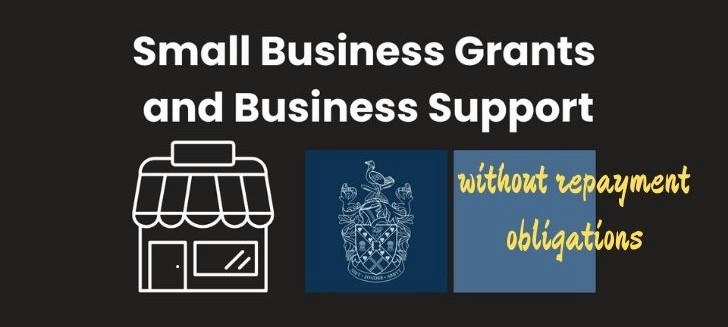Why Leave Money on the Table? Discover Small Business Funding Options!
Small business owners face countless challenges—but finding the right funding shouldn’t be one of them. Unlocking access to vital financial resources can fuel growth, spark innovation, and take your business to the next level. Fortunately, a variety of funding programs exist, offered by government agencies, corporations, and non-profits, designed specifically to support small businesses like yours—without repayment obligations. Whether you’re launching a startup or scaling an established company, tapping into these opportunities can transform your business future.

What Are Small Business Funding Programs and Why Do They Matter?
Unlike traditional loans, many funding programs provide capital that doesn’t require repayment, freeing up cash flow to invest in product development, marketing, and operations. Beyond just money, these programs encourage entrepreneurship, support underrepresented groups, and drive innovation across industries. Knowing where and how to find these resources is key to gaining a competitive edge.
Types of Small Business Funding You Should Know
● Startup Grants
Designed to jumpstart new businesses by covering early-stage expenses like equipment, marketing, and staffing.
● Minority-Owned Business Grants
Focused on empowering minority entrepreneurs with financial support plus mentorship and networking opportunities.
● Industry-Specific Grants
Targeted funds for sectors such as technology, healthcare, agriculture, and green energy—helping businesses innovate and grow.
● Regional Development Grants
Support local businesses in economically challenged areas to stimulate job creation and boost regional economies.
How to Maximize Your Chances of Funding Approval
Know Your Eligibility – Carefully review grant criteria to ensure your business qualifies.
Craft a Compelling Business Plan – Highlight clear goals, market demand, and exactly how funds will be used.
Present Transparent Financials – Accurate financial statements demonstrate your company’s stability and needs.
Leverage Expert Help – Use local business groups or consultants to polish your application.
Stay Proactive – Follow up promptly and provide additional information when requested.
Top Resources to Find Small Business Funding
● U.S. Small Business Administration (SBA) – Central hub for federal programs and support.
● Grants.gov – The official gateway to search and apply for government grants nationwide.
● Minority Business Development Agency (MBDA) – Specialized support for minority entrepreneurs.
● Local Economic Development Offices – Regional programs and initiatives tailored to your community.
Regional Success Stories That Inspire
Capitalizing on regional funding programs can make all the difference:
● California: Tech startups leverage the California Innovation Fund to finance R&D, accelerating breakthroughs and market entry.
● Texas: Manufacturing firms and minority-owned businesses benefit from targeted grants that boost production and sales.
● New York: Pandemic recovery funds and green technology incentives help businesses rebound and innovate sustainably.
● Florida: Tourism and agriculture sectors use specialized grants to improve digital marketing and modernize operations.
These examples prove that aligning your funding strategy with local programs and industry trends unlocks real growth potential.
Final Thoughts: Don’t Let Funding Opportunities Slip Away
Integrating a variety of funding programs into your business strategy isn’t just smart—it’s essential. Whether launching your dream startup or expanding an established company, accessing government and regional grants can reduce financial risk and accelerate your path to success. Stay informed, tailor your applications carefully, and tap into expert resources to turn funding opportunities into real business results.
The information on this site is of a general nature only and is not intended to address the specific circumstances of any particular individual or entity. It is not intended or implied to be a substitute for professional advice. Read more.
Published on August 12, 2025
